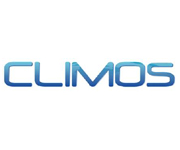Dr. Margaret Leinen Leaves National Science Foundation To Join Climos
Published 12-05-06
Submitted by Climos
SAN FRANCISCO--(BUSINESS WIRE)--Dec. 5, 2006--Climos, a new company which plans to leverage natural processes to reduce greenhouse gasses, announced today that Dr. Margaret Leinen will be joining Climos as Chief Science Officer in January 2007. Dr. Leinen is currently the Assistant Director for Geosciences at the U.S. National Science Foundation (NSF). Since 2000, Dr. Leinen has managed the Geosciences Directorate, the second largest at NSF, with an annual budget of $700M that funds the majority of new publicly-funded academic research initiatives in ocean, atmospheric and earth science in the United States. Leinen also served as Vice Chair of the U.S. Climate Change Science Program, the interagency program responsible for coordinating federal climate change scientific research.
"My work at NSF has been extremely rewarding--I'm proud of what we accomplished there," commented Dr. Leinen, "But I feel that now is the right time for me to leverage the results of scientific research to address the serious climate issues facing our planet."
Previously, Dr. Leinen was Dean, Graduate School of Oceanography and Vice Provost for Marine and Environmental Programs at the University of Rhode Island. Dr. Leinen is also a well-known researcher in paleo-oceanography and paleo-climatology. Her work focused on ocean sediments and their relationship to global biogeochemical cycles and the history of the Earth's climate. In 1983, on a dive in the deep-water submersible, DSRV ALVIN, off the coast of Washington State, she was the first to discover high temperature, volcanic vents at depth on the Juan de Fuca Ridge. The "black smokers" that characterize these vents contain unique varieties of "chemosynthetic" life (organisms that depend on inorganic molecules as a source of energy rather than sunlight)--this is the only form of life on Earth we know of that is not ultimately dependent on photosynthesis.
Above and beyond her day-to-day duties at NSF, Dr. Leinen led the Geosciences Directorate in a series of transformational initiatives. Specifically, she:
-- Led the transition of the Ocean Drilling Program (ODP) to the
Integrated Ocean Drilling Program (IODP).
-- Oversaw the initial funding and development of what promises
to be a revolutionary new approach to ocean sensing known as
the Ocean Observatories Initiative (also known as the Ocean
Research Interactive Observatory Networks or ORION)--a
critical research element of the Integrated Ocean Observation
System.
-- Championed one of the most important new climate observing
tools recently deployed, the Advanced Modular Incoherent
Scatter Radar (AMISR).
-- Initiated the EarthScope project, an extraordinary new
distributed infrastructure to observe dynamic geologic events.
-- Completed a decade of planning that led to HIAPER, the
aircraft that is UCAR's (University Corporation for
Atmospheric Research) High-Performance Instrumented Airborne
Platform for Environmental Research.
-- Oversaw the Biocomplexity in the Environment initiative and
directed NSF's Environmental Research and Education (ERE)
efforts, which coordinated the portfolio of environmental
programs across NSF, involving all directorates and offices.
During her career at NSF, Dr. Leinen served first as the Chair of the interagency U.S. Global Change Research Program, then Vice Chair of the interagency Climate Change Science Program and as a Co-Chair of the National Science and Technology Council's Joint Subcommittee on Ocean Science and Technology, at which she had a leadership role in the development of the Ocean Research Priorities Plan for the federal government. She is currently a member of the Rhode Island Governor's Science and Technology Advisory Council.
Dr. Leinen is past president of The Oceanography Society. She served on the Board of Governors of the Joint Oceanographic Institutions, Inc., on the Board of Directors of the Bermuda Biological Station for Research, and on the Ocean Research Advisory Council. Dr. Leinen also served as the Vice Chair of the International Geosphere-Biosphere Programme and on the Board on Global Change of the National Research Council/National Academy of Sciences. She is a Fellow of the American Association for the Advancement of Science and the Geological Society of America.
Climos is based in San Francisco and is headed by Dan Whaley, a Silicon Valley entrepreneur who founded GetThere, the company which in 1994 pioneered online travel reservations. "We're honored to have Dr. Leinen join Climos," said Dan, co-founder and CEO, Climos, "Our intent is to evaluate a number of promising natural processes to help mitigate climate change. In addition to her directly relevant scientific background, Margaret has well-earned respect within the community as someone with the highest commitment to rigorous scientific standards and principles. We're looking forward to her leadership in helping us establish a world-class scientific focus and discipline within Climos."
Richard Whilden, co-founder and Climos Chairman remarked, "Climos is an advocate of regulation and action to aggressively reduce carbon emissions, but we also realize that a large portion of emissions cannot be immediately addressed in this way. In the past year there has been an enormous increase in interest from citizens and major corporations to seriously explore how they can take meaningful action to become carbon neutral."
Climos is part of a new category of companies often referred to as "greentech" or "cleantech". To be notified of forthcoming Climos announcements, please visit www.climos.com or email news@climos.com.
Copyright Business Wire 2006


